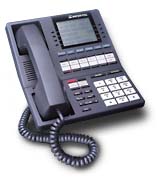| Message-ID: <20230607171128.GA485307@telecomdigest.us>
Date: 7 Jun 2023 13:11:28 -0400
From: "The Telecom Digest" <digest-replies@telecom-digest.org>
Subject: FCC Abandons 2015 Forfeiture Policy Statement In Favor Of
Case-By-Case Approach
by Chip Yorkgitis
While no one is likely to bemoan the Federal Communications
Commission's May 30, 2023, Memorandum Opinion and Order (MO&O) to
vacate the 2015 Forfeiture Policy Statement that had adopted a
methodology of treble damages for violations of rules requiring
payments to the Federal Universal Service Fund (USF), other funds
applicable to common carriers, annual FCC regulatory fees, some
semblance of certainty of maximum penalties may have been lost. The
Commission going forward will apply its discretion to determine
forfeitures based on a review of statutory and rule-based factors, the
Commission's 1997 Forfeiture Guidelines, and "the individualized
circumstances of each future adjudication." In effect, this is what
the FCC has been doing since it, according to the MO&O, has not
actually applied the "treble damages" limit in the past eight years in
any adjudication.
https://www.mondaq.com/article/news/1325052?q=1803232&n=810&tp=2&tlk=2&lk=35
|
| Message-ID: <20230607174007.GA485452@telecomdigest.us>
Date: 7 Jun 2023 13:40:07 -0400
From: "The Telecom Digest" <digest-replies@telecom-digest.org>
Subject: FCC Assures State Lawmakers Of Commitment To Pole
Attachment Rules Promoting Broadband Deployment And Competition
by Dave Thomas , Abraham J. Shanedling and Tom Reklaitis
Who knew that state sovereignty and urging states' rights meant
prompting federal agencies to bring about change at the local level?
That seems to be happening in the field of pole attachment regulation.
Section 224 of the Communications Act empowers the FCC to regulate the
rates, terms, and conditions of attachments on poles owned by
investor-owned utilities and phone companies. Section 224, however,
permits states to "reverse preempt" federal authority and regulate
attachments on their own upon filing a certification with the FCC of
their intent to do so. But before taking that step, a state's
legislature typically passes a law that authorizes the state public
utility commission to regulate pole attachments. To date, 24 states
(including the District of Columbia) have certified state-level
regulatory jurisdiction over rates, terms, and conditions for pole
attachments.
https://www.mondaq.com/article/news/1323800?q=1803232&n=810&tp=2&tlk=3&lk=36
|
| Message-ID: <20230608222344.GA494486@telecomdigest.us>
Date: 8 Jun 2023 18:23:44 -0400
From: "The Telecom Digest" <digest-replies@telecom-digest.org>
Subject: CWA Bargaining Update -- Frontier West Virginia
June 8, 2023
Frontier (West Virginia)
CWAers at Frontier in West Virginia and Ashburn, Va., are bargaining
for a new contract that covers approximately 1,400 members.
Negotiations opened on Monday between the company and CWA ahead of the
current contract expiration in August. The negotiations come at a
critical time for the company, which emerged from bankruptcy in April
2021. West Virginia is slated to receive $950 million from the
bipartisan federal infrastructure bill to invest in expanding
broadband internet access to locations across the state. Frontier
members in West Virginia and Ashburn went on strike for three weeks in
2018 in order to reach an agreement that ensured that they would be
able to provide quality service and keep good jobs in their
communities. “Five years after our strike, we have the same priorities
at Frontier in West Virginia and Virginia,” said Ed Mooney, Vice
President of CWA District 2-13. “Our message is simple: we want a
contract that supports quality jobs so we can deliver quality
service.”
https://cwa-union.org/news/bargaining-update-245
|



